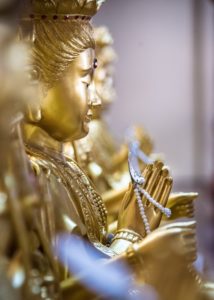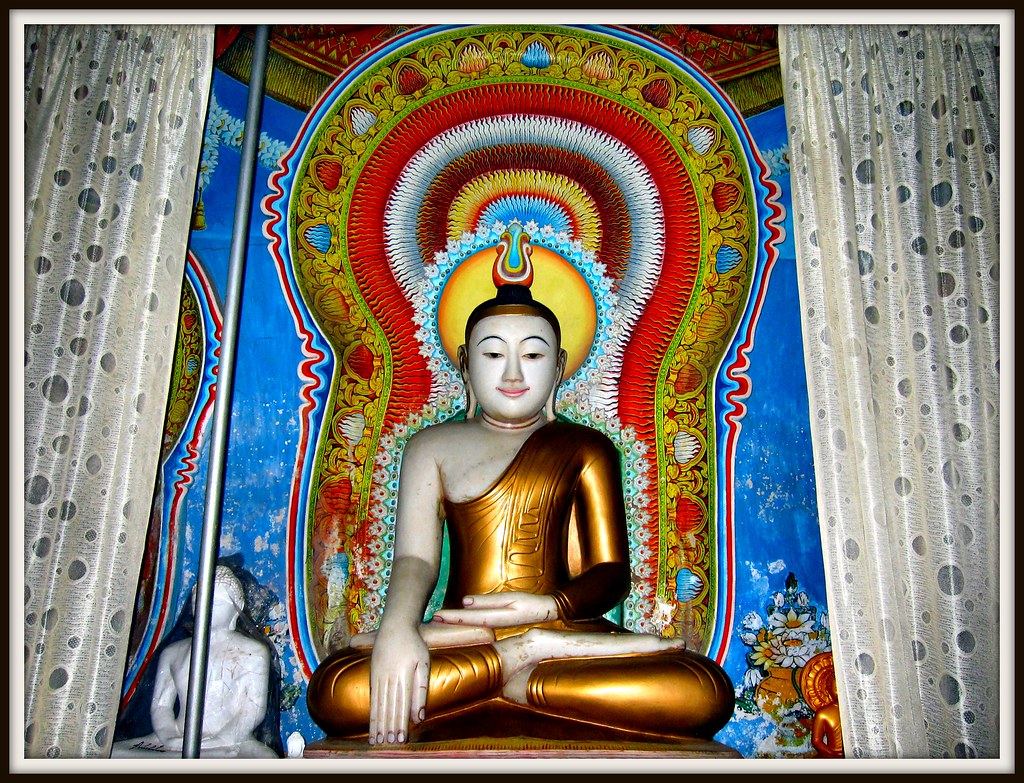I was going through a phase of my life where no religion was being able to teach me how to incorporate spirituality in my everyday life, and that made me question myself as to what the role of spirituality really was. I remember seeing people leaving the church with the feeling that they were heading back to “real” life.
But what is real life then?
How can spirituality assist us when leaving home to work, in traffic, doing our groceries, dealing with problems at work or with family? I looked at many churchgoers and felt horrified by their hypocrisy, they all looked like saints during worship and yet, when not in church, they would engage in gossips, talk about others’ behind their backs, make comments on superficial matters, carrying on with their lives interpreting their experiences as solid realities, brainwashed by media and costumes of society.
So I started questioning all these things. Shouldn’t spirituality be present at every circumstance of life? Or should it be present only when at church before a priest, a pastor, or during a mess? Why do we feel like the world out there with all our responsibilities is greater than the spiritual? Why is that world so solid? There was absolutely no western religion that could provide me with a satisfactory answer to those questions. Even though western religions talk about love and compassion, it has always appeared to me that all those words were indeed mere words, never reaching the field of actual experience. In those western traditions, it seemed to me that love and compassion are only words mentioned, adorned with beautiful stories and tales, but with no incisive method to accomplish them.
Questioning Spirituality
The incapacity to provide me with answers and to make my mind in peace in that regard propelled me to seek something different, something outside of that scope. For some time I even questioned spirituality itself, considering the possibility of becoming a complete skeptical. I tried to convince myself that maybe what exists, in reality, is indeed what we have been taught by materialistic science, reducing everything to matter and chance.
 However, a part of me did not agree with that line of reasoning either and that made me proceed with my search. It was then when I came across a magazine with H.H. The XIV Dalai Lama on the cover of one of its issues, and the headlines read in bold: “Buddhism, a religion without God?” That picked my interest immediately, and I bought that issue. I felt that the article was rather poor, but it was sufficient to make me want more of it, so I started looking for a Buddhist center. When I finally found one, I attended a meeting in which they were discussing the 12 links of interdependent origination. Although I didn’t understand a thing, that surely resonated within my mind and I thought: “Well if it is not obvious, there must be something very powerful in it.” And I kept going to the meetings and started learning meditation to contemplate that subject. Two years later, through stabilizing meditation (Shamatha) and analytical meditation, I came to realize the importance of that.
However, a part of me did not agree with that line of reasoning either and that made me proceed with my search. It was then when I came across a magazine with H.H. The XIV Dalai Lama on the cover of one of its issues, and the headlines read in bold: “Buddhism, a religion without God?” That picked my interest immediately, and I bought that issue. I felt that the article was rather poor, but it was sufficient to make me want more of it, so I started looking for a Buddhist center. When I finally found one, I attended a meeting in which they were discussing the 12 links of interdependent origination. Although I didn’t understand a thing, that surely resonated within my mind and I thought: “Well if it is not obvious, there must be something very powerful in it.” And I kept going to the meetings and started learning meditation to contemplate that subject. Two years later, through stabilizing meditation (Shamatha) and analytical meditation, I came to realize the importance of that.
I learned to reach beyond, there is a dimension of experiencing the reality that is beyond the cognitive level, which is the actual ground that gives rise to true happiness and lies beyond the shallow cognitive experience. That has been the most important thing I have been learning from Buddhism since then and that can be reached by every one of us. The recognition of that dimension is what enables me to see spirituality in every moment of life; it is the very instrument that keeps my mind tuned with every aspect of reality and makes me aware that I am constantly creating it. Through meditation and the contemplation of emptiness, I have been experiencing this dimension of freedom from which all range of possibilities arises. Such a level of experience is beyond all words and can be fully experienced by someone eager enough to search for the inner world. Love and compassion ceased to be mere words and became a practice in everyday life.





